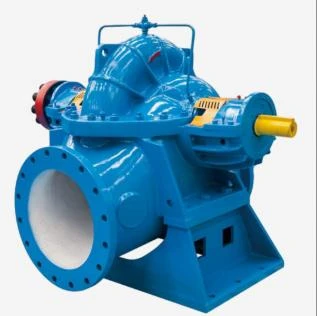English
- Afrikaans
- Albanian
- Amharic
- Arabic
- Armenian
- Azerbaijani
- Basque
- Belarusian
- Bengali
- Bosnian
- Bulgarian
- Catalan
- Cebuano
- Corsican
- Croatian
- Czech
- Danish
- Dutch
- English
- Esperanto
- Estonian
- Finnish
- French
- Frisian
- Galician
- Georgian
- German
- Greek
- Gujarati
- Haitian Creole
- hausa
- hawaiian
- Hebrew
- Hindi
- Miao
- Hungarian
- Icelandic
- igbo
- Indonesian
- irish
- Italian
- Japanese
- Javanese
- Kannada
- kazakh
- Khmer
- Rwandese
- Korean
- Kurdish
- Kyrgyz
- Lao
- Latin
- Latvian
- Lithuanian
- Luxembourgish
- Macedonian
- Malgashi
- Malay
- Malayalam
- Maltese
- Maori
- Marathi
- Mongolian
- Myanmar
- Nepali
- Norwegian
- Norwegian
- Occitan
- Pashto
- Persian
- Polish
- Portuguese
- Punjabi
- Romanian
- Russian
- Samoan
- Scottish Gaelic
- Serbian
- Sesotho
- Shona
- Sindhi
- Sinhala
- Slovak
- Slovenian
- Somali
- Spanish
- Sundanese
- Swahili
- Swedish
- Tagalog
- Tajik
- Tamil
- Tatar
- Telugu
- Thai
- Turkish
- Turkmen
- Ukrainian
- Urdu
- Uighur
- Uzbek
- Vietnamese
- Welsh
- Bantu
- Yiddish
- Yoruba
- Zulu
Telephone: +86 13120555503
Email: frank@cypump.com
Nov . 06, 2024 07:18 Back to list
Efficient Wastewater Management Solutions for Modern Sewer Systems and Pumping Operations
Understanding the Importance of Sewer Pumpers in Modern Sanitation
In the realm of sanitation and waste management, sewer pumpers play a crucial role that often goes unnoticed by the general public. These specialized vehicles are designed to safely transport and dispose of wastewater, keeping our environments clean and preventing health hazards associated with sewage buildup. Let’s delve deeper into the significance of sewer pumpers, their functions, and the impact they have on public health and the environment.
What are Sewer Pumpers?
Sewer pumpers are heavy-duty trucks equipped with powerful pumps and large storage tanks specifically designed for the task of removing and transporting sewage and other liquid waste. They are commonly used by municipal waste management services and private septic tank providers to ensure that waste is handled efficiently and safely. The operation of these vehicles is not just about removing waste; it involves a careful process that adheres to health regulations and environmental protection standards.
The Mechanics of Sewer Pumpers
The primary components of a sewer pumper include a vacuum pump and a large tank that can hold thousands of gallons of liquid waste. The vacuum pump creates a low-pressure environment that allows it to suck waste into the tank from septic tanks, sewer lines, or grease traps. Once the tank is full, the pumper travels to a designated waste treatment facility where the contents are emptied and treated according to local regulations.
The technology embedded within sewer pumpers has advanced over the years, with improvements in pump efficiency, tank designs, and even tracking systems for real-time monitoring
. This evolution has enhanced their capability to operate in various settings, from residential areas with septic systems to industrial zones with large-scale waste management needs.The Role of Sewer Pumpers in Public Health
sewer pumper

Sewer pumpers are vital to public health for several reasons. First and foremost, they help to prevent sewage backups, which can lead to serious health hazards such as waterborne diseases. When wastewater is not properly managed, it can contaminate groundwater and nearby bodies of water, posing risks to both human health and local ecosystems.
Additionally, sewer pumpers ensure that wastewater is treated properly before it is reintroduced into the environment. By transporting waste to treatment facilities, they play a critical role in the wastewater management system, which processes contaminants before discharging treated water back into rivers, lakes, or the ocean.
Environmental Protection
Beyond public health, sewer pumpers are instrumental in protecting the environment. Effective waste removal and treatment mitigate the risk of pollution caused by raw sewage entering natural waterways. The presence of untreated wastewater can lead to detrimental effects such as algal blooms, which deplete oxygen in water bodies and kill aquatic life.
Moreover, in areas where septic systems are common, regular pumping is essential to prevent system failure. When septic tanks become full, they can leak, leading to soil and groundwater contamination. Regular maintenance by sewer pumpers helps extend the life of these systems and promotes sustainable practices in waste management.
Conclusion
The importance of sewer pumpers in our daily lives cannot be overstated. From safeguarding public health to protecting our precious environmental resources, these vehicles are a vital part of our sanitation infrastructure. As urban populations continue to grow and infrastructure demands increase, the role of sewer pumpers will become even more critical. Emphasizing the significance of proper waste management and the technology that supports it is essential for ensuring a cleaner, healthier future for all. Stakeholders, including local authorities and the general public, must recognize and support the systems in place that keep our communities hygienic and safe. Investing in sewer pumping services is, therefore, an investment in public health and environmental sustainability.
-
Horizontal Split Case Pump with GPT-4 Turbo | High Efficiency
NewsAug.01,2025
-
ISG Series Pipeline Pump - Chi Yuan Pumps | High Efficiency, Durable Design
NewsAug.01,2025
-
Advanced Flue Gas Desulfurization Pump with GPT-4 Turbo | Durable & Efficient
NewsJul.31,2025
-
ISG Series Vertical Pipeline Pump - Chi Yuan Pumps | Advanced Hydraulic Design&Durable Construction
NewsJul.31,2025
-
ISG Series Vertical Pipeline Pump - Chi Yuan Pumps | Energy Efficient & Low Noise
NewsJul.31,2025
-
pipeline pump - Chi Yuan Pumps Co., LTD.|High Efficiency&Low Noise
NewsJul.31,2025










